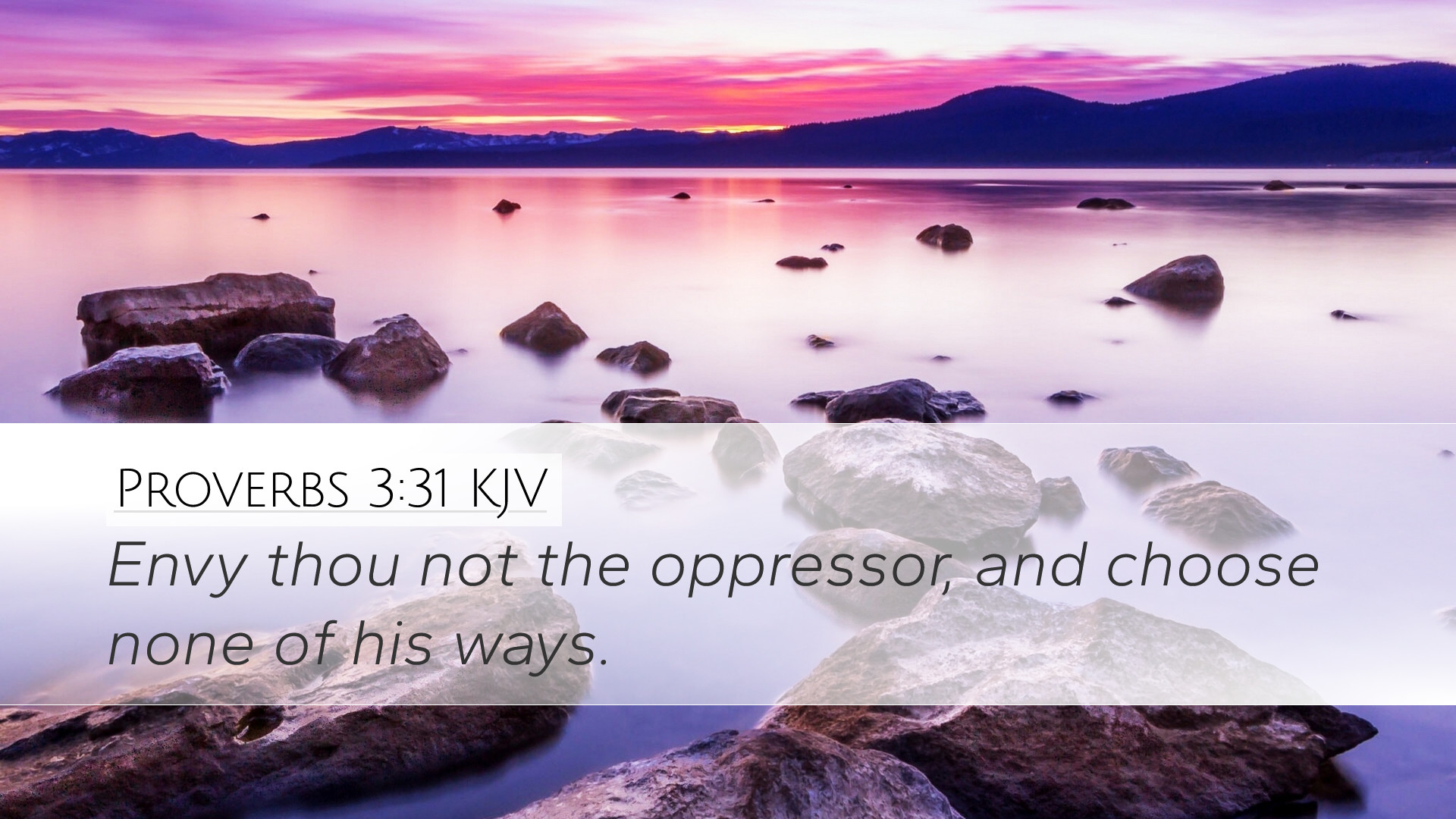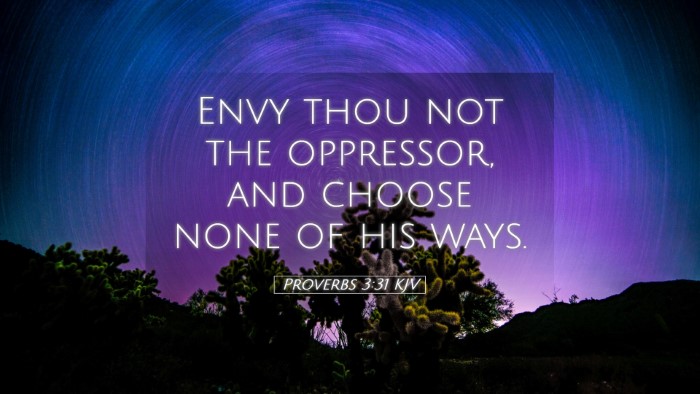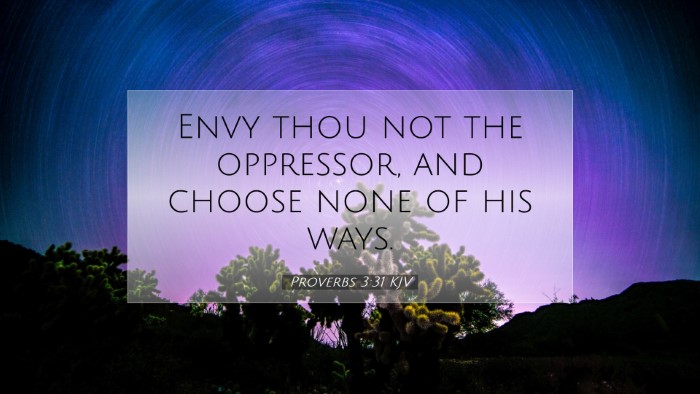Commentary on Proverbs 3:31
Verse (Proverbs 3:31): "Envy thou not the oppressor, and choose none of his ways." (KJV)
Introduction
The wisdom presented in Proverbs serves as a guide for living a life aligned with divine principles. Proverbs 3:31 encapsulates a powerful exhortation on the nature of envy and the dangers of choosing paths influenced by worldly oppression. This commentary seeks to explore these profound insights through the lens of historical biblical interpretation.
Exegesis of the Verse
This verse addresses a theme recurrent in wisdom literature: the comparison between the righteous and the wicked. It encourages the faithful to remain steadfast in their moral convictions, particularly in the face of adversity and injustice.
- Envy Not the Oppressor: The admonition against envy highlights the tendency to admire the wealth and influence of those who achieve success through unscrupulous means.
- Choose None of His Ways: This directive urges the believer to actively reject the paths of the oppressor, reinforcing the necessity of moral integrity and the importance of ethical living.
Insights from Matthew Henry
Matthew Henry comments extensively on the nature of envy, emphasizing that it arises from a lack of understanding of God's providence. He warns that admiring the oppressor leads to spiritual peril and forsaking the covenant of God.
- Character and Conduct: Envy reflects a heart that questions God’s justice and the integrity of His providential care. Henry maintains that one’s character must not be determined by the apparent success of one's adversaries.
- Moral Choices: Choosing the ways of an oppressor compromises one’s spiritual health and leads to inevitable dissatisfaction. A believer is admonished to find contentment in righteousness rather than in the transient successes of evil.
Insights from Albert Barnes
Albert Barnes references the context of the proverb, emphasizing that those who engage with the oppressor's lifestyle risk losing their moral compass. Barnes points to the socio-political implications of the verse during the times of kings and judges.
- Worldly Influence: Barnes highlights how external influences can lead to internal decay. He argues that the allure of power corrupts judgment and can sway even the most righteous among them.
- Wisdom vs. Folly: The choice set before believers is one of wisdom over folly. Barnes urges that rather than seeking the approval of the corrupt, one should rely on divine wisdom, which leads to peace and security.
Insights from Adam Clarke
Adam Clarke elaborates on the theme of moral integrity and accountability, focusing on the consequences of envy and the choices people make in their lives. His reflections provide a keen understanding of the social and spiritual ramifications of the verse.
- Spiritual Discernment: Clarke posits that discernment is crucial for navigating the complexities of human interactions. He points out that envy often stems from comparing one's life with the apparent success of others.
- Consequences of Choices: He warns that adopting the ways of the oppressor not only corrupts oneself but also leads to severe consequences, both temporally and eternally. The choices we make mark our spiritual journey.
Application for Pastors and Theologians
For pastors, the message of Proverbs 3:31 serves as a vital reminder of the importance of integrity in ministry. The pressures to conform to methods that yield immediate success can be overwhelming; however, this passage reinforces the need for a ministry rooted in the values of the Kingdom of God.
Theologians might explore the implications of this verse against the backdrop of biblical ethics, examining how the pursuit of power can skew moral perspectives and lead to the oppression of those who are vulnerable. The call to action is one of vigilance and commitment to a life reflecting God's justice and righteousness.
Conclusion
Proverbs 3:31 encapsulates a timeless truth applicable across generations. As believers navigate a world filled with envy and oppression, the call is to uphold integrity, choose paths aligned with God’s justice, and trust in His providence. Through the insights of revered commentators, we understand the dangers of envy and the value of making godly choices that transcend immediate worldly allurements. This wisdom not only guides personal conduct but serves as a foundational principle for church leadership and theological reflection.


